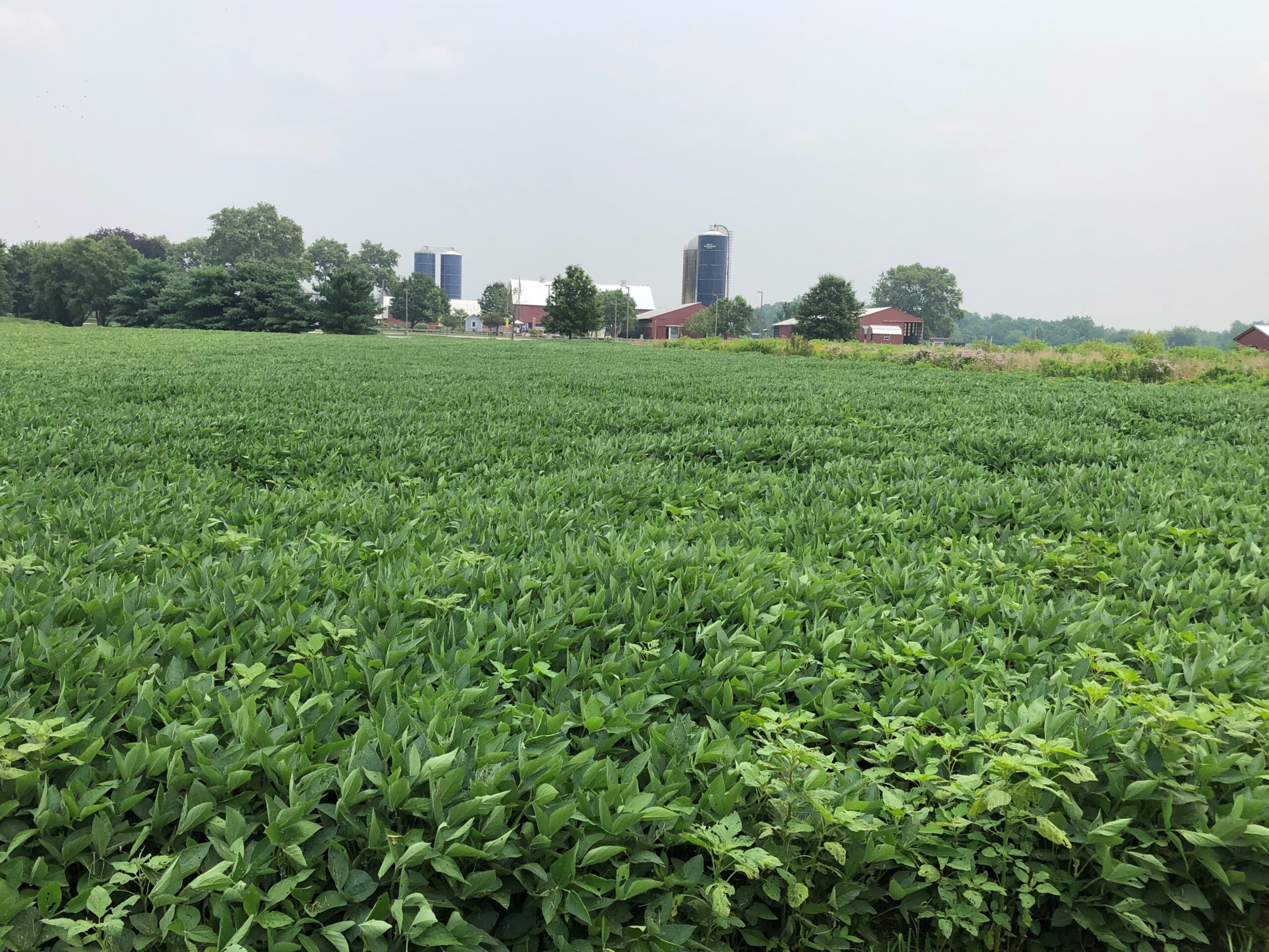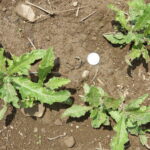Rutgers Cooperative Extension of Burlington County will host a research and demonstration plot field tour at the Burlington County Agricultural Center on Wednesday, September 14, 2022. Pesticide recertification credits will be available: CORE (2) plus categories 1A (3), 10 (3), and PP2 (3).
Space is limited and REGISTRATION IS REQUIRED. Please contact Sandra Trossbach at 609-265-5051 or strossbach@co.burlington.nj.us to register by Wednesday, September 7.

Soybeans in research plot at Burlington County Agricultural Center.
PROGRAM AGENDA
5:15 p.m. Meal and Registration (in the red market barn)
6:00 p.m. Walk to demonstration plots
6:15 p.m. How low can you go? Impact of soybean planting population on yield efficiency and crop management.
- Bill Bamka, Agricultural Agent, RCE-Burlington County
6:45 p.m. Off-target herbicide movement and response of economically important vegetable crops to sub-lethal rates of dicamba
- Thierry Besançon, Extension Specialist in Weed Science – Specialty Crops, Rutgers NJAES
7:15 p.m. Walk back to market barn
7:30 p.m. Beyond the active ingredient: Additives to the pesticide spray tank
- Kate Brown, Program Associate, RCE-Burlington County
8:00 p.m. Pesticide Recertification Credits and Adjourn
The flyer for this event is available at https://events.rutgers.edu/pdfs/Flyer_Research-Tour-at-Ag-Center-2022.pdf.


